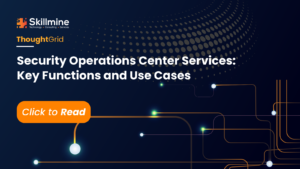In an era of relentless digital transformation, AI has emerged as a pivotal force, spearheading innovation and reshaping business paradigms across industries. Yet, with its vast potential comes an equally profound ethical mandate.
For today’s CXOs, mastering AI transcends technological expertise—it demands a commitment to its ethical deployment, ensuring trust, equity, and long-term societal benefit.
Key Ethical Considerations for CXOs
Bias and Fairness
- Mitigating Bias: Prioritize diverse, high-integrity data to minimize biased outcomes and ensure AI promotes fairness across its applications.
- Ensuring Equity: Implement robust assessment frameworks to evaluate AI systems for fairness, mitigating any risk of unintended discrimination.
- Clarifying AI Decisions: Guarantee transparency in AI systems, especially in critical decision-making, by providing clear insights into their processes and rationale.
- Fostering Explainability: Focus on developing interpretable AI models, making it easier for stakeholders to understand, trust, and rely on AI-driven conclusions.
- Protecting Personal Data: Address the evolving challenge of safeguarding sensitive information in an AI-driven landscape, while ensuring full compliance with data privacy regulations.
- Navigating Compliance: Stay ahead of regulatory frameworks (e.g., GDPR, CCPA), understanding their impact on AI governance and adoption strategies.
- Establishing Responsibility: As AI assumes more critical roles, it becomes essential to create clear accountability mechanisms to manage risks associated with AI-driven decisions or errors.
- Upholding Ethical Standards: Implement comprehensive guidelines that ensure AI development and deployment align with ethical best practices, fostering responsible use across the organization.
- Evolving the Workforce: Proactively address the impact of AI on employment, investing in reskilling and upskilling initiatives to support workforce adaptability.
- Ethical AI Integration: Commit to AI adoption strategies that promote societal well-being, ensuring technological progress aligns with human-centered values.
Actionable Steps for Ethical AI Adoption
- Craft a Clear AI Strategy:Define your AI objectives with a strong ethical foundation, ensuring governance structures are in place to guide responsible implementation.
- Invest in Ethical AI Research: Stay on the cutting edge by supporting initiatives that advance both AI innovation and ethical practices.
- Foster Collaborative Trust: Actively engage with internal teams, regulators, and external stakeholders to build transparency and trust in AI decisions.
- Implement Governance Structures: Create policies and accountability mechanisms to ensure ethical AI use throughout your organization.
- Commit to Continuous Oversight: Regularly monitor AI systems for ethical compliance and make real-time adjustments to mitigate risks.
Conclusion
AI’s transformative potential can unlock extraordinary opportunities, but only when CXOs champion ethical frameworks that prioritize fairness, accountability, and societal well-being. By embedding responsible AI practices at the core of their strategy, leaders not only protect their organizations but also cultivate sustainable, trust-driven growth in this AI-powered era.
Empower your organization with Skillmine’s advanced AI/ML solutions, designed to prioritize fairness, transparency, and accountability. Let’s redefine innovation—responsibly.
Empower your organization with Skillmine’s advanced AI/ML solutions, designed to prioritize fairness, transparency, and accountability. Let’s redefine innovation—responsibly.





